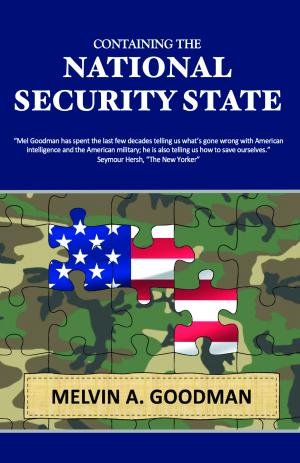Goodman letter in NY TIMES
In the Mideast, U.S. Foreign Policy Gone Awry
A reader cites the many ways that U.S. policy toward the Middle East has created more problems and terrorists.
Jan. 9, 2020

To the Editor:
“A President’s Mixed Messages Unsettle More Than Reassure” (news analysis, front page, Jan. 9) quotes an Iranian-American strategist who described President Trump’s policy toward the Middle East over the past few months as “strategically incoherent.” In fact, U.S. policy in the region has been incoherent for nearly two decades with the pursuit of policies that have created terrorists faster than they could be eliminated.
Since the 9/11 terrorist attacks, U.S. actions have worsened the stability of the Middle East, the Persian Gulf and Southwest Asia. Our prolonged stay in Afghanistan has been a strategic nightmare. George W. Bush’s invasion of Iraq was doomed from the start, targeting the wrong enemy and creating conditions for the current instability throughout the region.
American policies have contributed to metastasizing Al Qaeda into a diffuse global movement and intensified radical militancy in the Muslim world. Meanwhile, the huge costs of the “global war on terror” have compromised our ability to fund key domestic programs.
Mr. Trump’s actions toward Iran will increase the terrorist threat to the United States, creating more tactical opportunities for the Islamic State, and will allow President Vladimir Putin to improve Russia’s relations with both Iran and Iraq.
Finally, Iran’s nuclear ambitions have been revived, and the important co-signers of the 2015 nuclear accord have questioned and challenged the wisdom of U.S. actions.
Melvin A. Goodman
Bethesda, Md.
The writer, a former C.I.A. analyst, is senior fellow at the Center for International Policy.A version of this article appears in print on Jan. 10, 2020, Section A, Page 26 of the New York edition with the headline: In the Mideast, U.S. Foreign Policy Gone Awry. Order Reprints | Today’s Paper | Subscribe
Recent News and Latest Book
Iran and the US Say Enough, Will Israel Go Along?
The emphasis now should be on a cease fire in Gaza; release of the hostages; a surge of humanitarian assistance to Gaza; and talks with Iran that could lead to diplomatic recognition.
Meet the Newest Apologist for Israel: Rear Admiral John Kirby
Tuesday’s press conference highlighted the worst of the administration’s predictable defenses and apologies for Israel’s illegal and immoral military campaign against Palestinian civilians. Once again, the worst of Kirby’s remarks were not referenced in the Washington Post and received an anodyne one-sentence summary in the New York Times. I believe it is important to understand the meaning and implications of Kirby’s callous and callow remarks.


